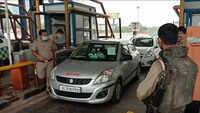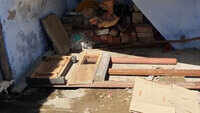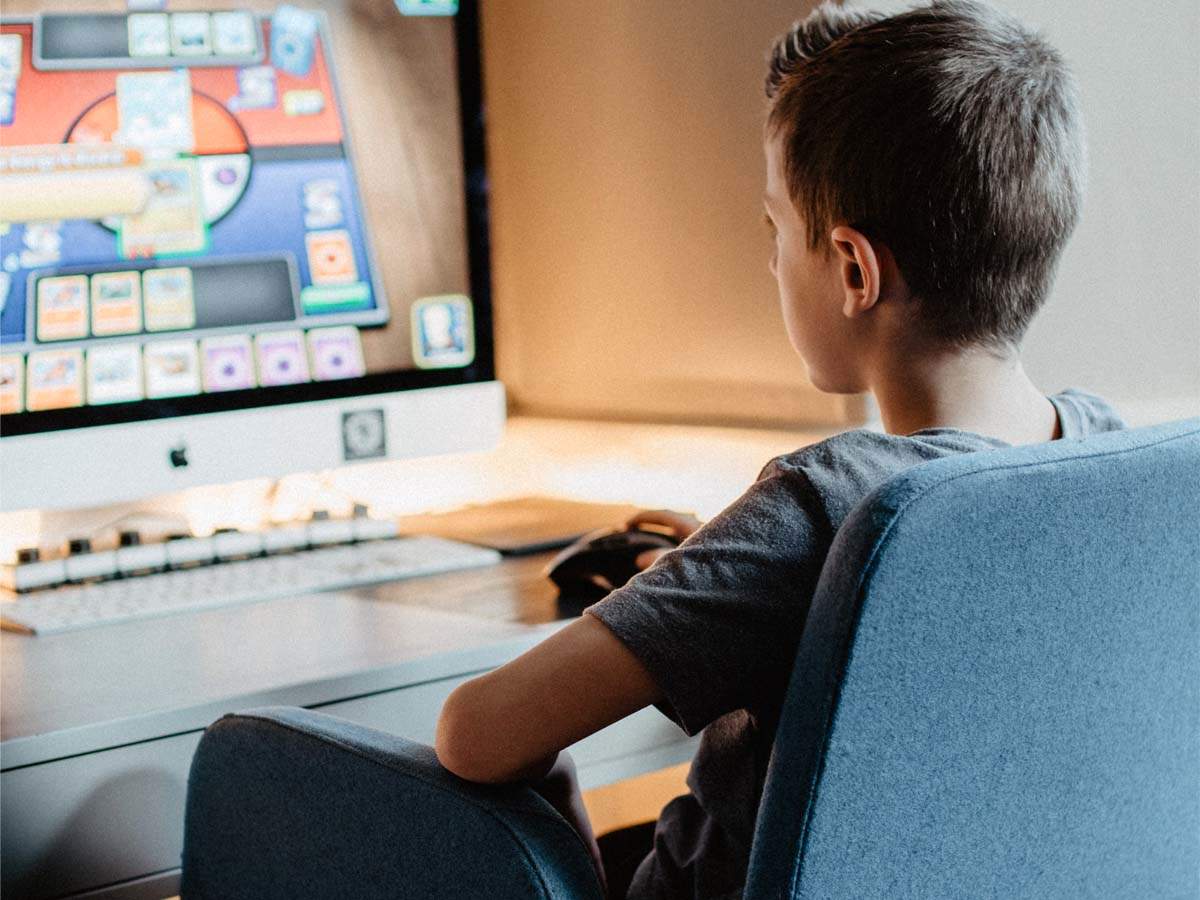
CHENNAI: Early June, in Kanyakumari district, four men and two minor boys were arrested after they sexually assaulted an eight-year-old girl. Later that month in Coimbatore, three minor boys were booked under Protection of Children from Sexual Offences (POCSO) Act for molesting a 11-year-old girl.
The lockdown has seen a spike in the instances of domestic violence as women are trapped indoors with their abusers. And many children too are at high risk of facing abuse within their homes, say activists. Considering the severely underreported category of crimes that constitute child sexual abuse (CSA) inside families, they fear the lockdown has made both reporting and intervention next to impossible. “When we get a case of a child facing abuse from a family member, we first move them to a safe space, which is not possible now,” says Sherin Bosko, founder of rape crisis centre and NGO Nakshatra. “With lockdown, the scope for incest crimes has gone up because both the perpetrator and the victim are forced to stay indoors.” Also, the usual allies that the child may find in friends or teachers at school, are now inaccessible.
Activists say often sexual crimes inside homes reach the police only after they’ve become medical emergencies.
Sakshi, an NGO educating youth to prevent CSA in their families and communities, has trained around 10,000 National Service Scheme (NSS) volunteers across the country and 1,249 in Tamil Nadu since the lockdown began. The 18 to 22 year olds are educated to identify symptoms of abuse in children within their families and neighbourhoods. “The programme offers resolution mechanisms to the students to converse about this with two family or community members – one younger, one older. The older member becomes their ally to identify symptoms of CSA, break the silence, and call out the perpetrator,” says Smita Bharti, president and executive director, Sakshi. “The signs to look out for include sudden behavioural changes in children -- if they have become unusually quiet, become scared of the dark, or started having nightmares. While these may seem innocuous, they do reveal that the child is troubled,” says Dr Aditi Kishore, south India head, Sakshi.
However, officials at Child Line Tamil Nadu as well as the Chennai police say they haven't seen an increase in the number of CSA cases during the lockdown. A Child Line India data revealed that more than 6 lakh calls were received between March 20 and April 20, of which 18,217 calls required on-ground intervention and 19% of these accounted for cases requiring protection from abuse, including sexual abuse, trafficking, abandonment and neglect. “While lockdown has limited the opportunities for the child to disclose the abuse – should they choose to –- we must remember that all family members are constantly around now, so chances of getting abused could become slim,” says Vidya Reddy, founder of Tulir - Centre for the Prevention and Healing of Child Sexual Abuse.
Pointing out the power dynamics at play inside an abusive household, some activists believe the exploitation may not necessarily be a secret, but silenced. “When the abuser is the head of the family, they tend to suppress everyone else,” says Smita.
(The victims' identity has not been revealed to protect their privacy as per Supreme court directives on cases related to sexual assault)
The lockdown has seen a spike in the instances of domestic violence as women are trapped indoors with their abusers. And many children too are at high risk of facing abuse within their homes, say activists. Considering the severely underreported category of crimes that constitute child sexual abuse (CSA) inside families, they fear the lockdown has made both reporting and intervention next to impossible. “When we get a case of a child facing abuse from a family member, we first move them to a safe space, which is not possible now,” says Sherin Bosko, founder of rape crisis centre and NGO Nakshatra. “With lockdown, the scope for incest crimes has gone up because both the perpetrator and the victim are forced to stay indoors.” Also, the usual allies that the child may find in friends or teachers at school, are now inaccessible.
Activists say often sexual crimes inside homes reach the police only after they’ve become medical emergencies.
Sakshi, an NGO educating youth to prevent CSA in their families and communities, has trained around 10,000 National Service Scheme (NSS) volunteers across the country and 1,249 in Tamil Nadu since the lockdown began. The 18 to 22 year olds are educated to identify symptoms of abuse in children within their families and neighbourhoods. “The programme offers resolution mechanisms to the students to converse about this with two family or community members – one younger, one older. The older member becomes their ally to identify symptoms of CSA, break the silence, and call out the perpetrator,” says Smita Bharti, president and executive director, Sakshi. “The signs to look out for include sudden behavioural changes in children -- if they have become unusually quiet, become scared of the dark, or started having nightmares. While these may seem innocuous, they do reveal that the child is troubled,” says Dr Aditi Kishore, south India head, Sakshi.
However, officials at Child Line Tamil Nadu as well as the Chennai police say they haven't seen an increase in the number of CSA cases during the lockdown. A Child Line India data revealed that more than 6 lakh calls were received between March 20 and April 20, of which 18,217 calls required on-ground intervention and 19% of these accounted for cases requiring protection from abuse, including sexual abuse, trafficking, abandonment and neglect. “While lockdown has limited the opportunities for the child to disclose the abuse – should they choose to –- we must remember that all family members are constantly around now, so chances of getting abused could become slim,” says Vidya Reddy, founder of Tulir - Centre for the Prevention and Healing of Child Sexual Abuse.
Pointing out the power dynamics at play inside an abusive household, some activists believe the exploitation may not necessarily be a secret, but silenced. “When the abuser is the head of the family, they tend to suppress everyone else,” says Smita.
(The victims' identity has not been revealed to protect their privacy as per Supreme court directives on cases related to sexual assault)

Coronavirus outbreak
Trending Topics
LATEST VIDEOS
City
 Good news! ICMR aims to launch indigenous Covid-19 vaccine by August 15
Good news! ICMR aims to launch indigenous Covid-19 vaccine by August 15  MP: Jyotiraditya Scindia addresses party workers through a virtual rally to mark 100 days of Shivraj Singh Chouhan govt
MP: Jyotiraditya Scindia addresses party workers through a virtual rally to mark 100 days of Shivraj Singh Chouhan govt  UP: Six men bludgeon woman to death after failed rape attempt, arrested by Etah police
UP: Six men bludgeon woman to death after failed rape attempt, arrested by Etah police  Massive border check on DND flyway from Noida to Delhi after 8 cops killed in encounter with criminals near Kanpur
Massive border check on DND flyway from Noida to Delhi after 8 cops killed in encounter with criminals near Kanpur
More from TOI
Navbharat Times
Featured Today in Travel
Get the app





